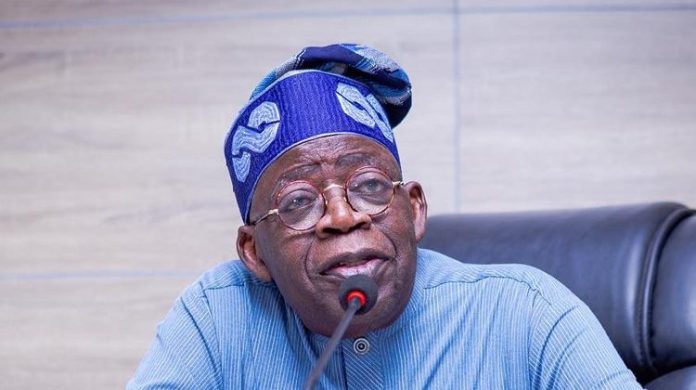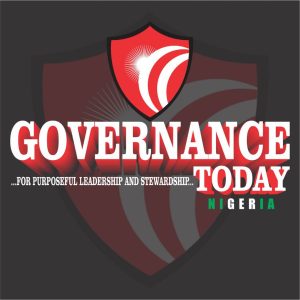President Bola Tinubu on Sunday, advocated a speedy review of global taxation, describing this as a sustainable way to redress the imbalance in the international tax regime.
Tinubu made the call when he addressed his counterparts at the third South Summit of the Group of 77 and China, which opened on Sunday in Kampala, the Ugandan capital.
The summit is themed ‘Leaving No One Behind.’
“The current international tax systems, largely shaped by the interests of more affluent nations, often leave developing countries at a disadvantage, especially in taxing digital economies.
“This systemic imbalance has led to significant revenue losses, hampering our efforts towards sustainable development and economic self-reliance,” argued Tinubu, who was represented by the Minister of Budget and Economic Planning, Abubakar Bagudu.
The ministry’s Director of Information, Mrs Folasade Boriowo, revealed this in a statement on Sunday titled ‘President Tinubu calls for review of the global tax system, affirms commitment to multilateralism.’
The President affirmed the country’s belief in and commitment towards multilateralism to address global challenges, adding that international taxation has become a pressing issue because it impacts developing countries.
n response, Nigeria, alongside other member states of the African Group, championed a historic initiative at the United Nations calling for a Framework Convention on Tax.
He said this resolution marks a pivotal step towards establishing a more equitable and inclusive global tax system.
Expressing Nigeria’s appreciation to all the countries that supported the global tax review initiative, President Tinubu said their solidarity reflects “our shared commitment to rectifying the inequities of the current tax system and fostering a more just economic order.”
While reaffirming Nigeria’s commitment to South-South economic collaboration, he highlighted the critical role of the Action Committee on Raw Materials of the G-77, established in 1987, for enhancing cooperation in developing and processing raw materials.
He advocated the revival of the ACRM, acknowledging the importance of comprehensive data on raw material availability and location.
“This is crucial for coordinated information dissemination, facilitating access for international entrepreneurs and joint venture partners and addressing challenges in raw material development that hinder industrialization and economic growth,” he said.
The Nigerian leader further argued, “The resuscitation of the ACRM, with a focus on data-driven strategies and information systems, is imperative to improving trade terms, fostering economic self-reliance and enhancing resilience among developing countries.”
He restated Nigeria’s earlier position on Israel’s attack on Palestine over Gaza, which has assumed a critical dimension.
“Nigeria aligns itself with the international community’s call for an immediate ceasefire and a peaceful resolution to the conflict.
“Upholding our commitment to the principles of sovereignty, territorial integrity and the promotion of peace and security, we firmly support a two-state solution as the path forward in this protracted conflict,” he said.
The President condemned any form of indiscriminate violence, emphasising the urgent need to address humanitarian concerns, and ensuring the protection and dignity of all civilians affected by this crisis.
He said, “As a member of this Group, Nigeria remains dedicated to advocating peaceful solutions in global conflict zones, reflecting our commitment to the stability and prosperity of the African continent and the global community.”
Tinubu also drew the attention of the Summit to the 75th anniversary of the United Nations, spoking of Group of 77’s enduring commitment to fostering a world where no one is left behind – where every individual has an equal opportunity to thrive.
“It seeks our collective commitment to building an influential force that champions international peace and security, protects the rights and dignity of our citizens, and fosters cooperation in the spirit of South-South collaboration,” the President said.
He called for concerted action to tackle climate change, eco-disparities, environmental concerns and emerging global challenges such as the digital divide, cybersecurity, illicit financial flows, terrorism and corruption, which he said “undermine our socio-economic stability and require a united approach by this assembly.”
President Tinubu also accentuated the importance of technical cooperation and capacity building in addressing current global challenges, saying, “As a country, we have been actively engaged through the Directorate of Technical Aid Corps in fostering international cooperation in the spirit of South-South Collaboration.”
He described the DTAC as a critical instrument of Nigeria’s foreign policy, facilitating the exchange of expertise and knowledge with 38 African, Caribbean and Pacific countries and dispatching over 30,000 skilled professionals since its inception in 1987.
Tinubu said by leveraging the strengths of DTCA, Nigeria aims to deepen ties with fellow African nations, sharing resources and expertise to promote mutual growth and development.
As the G77 looks towards the future, the President reaffirmed Nigeria’s commitment towards multilateralism, saying the organisation should envision a movement that is responsive to the needs and aspirations of Member States.
The Summit is being attended by several heads of state and government as well as heads of international organisations, including United Nations Secretary-General Antonio Guterres.










